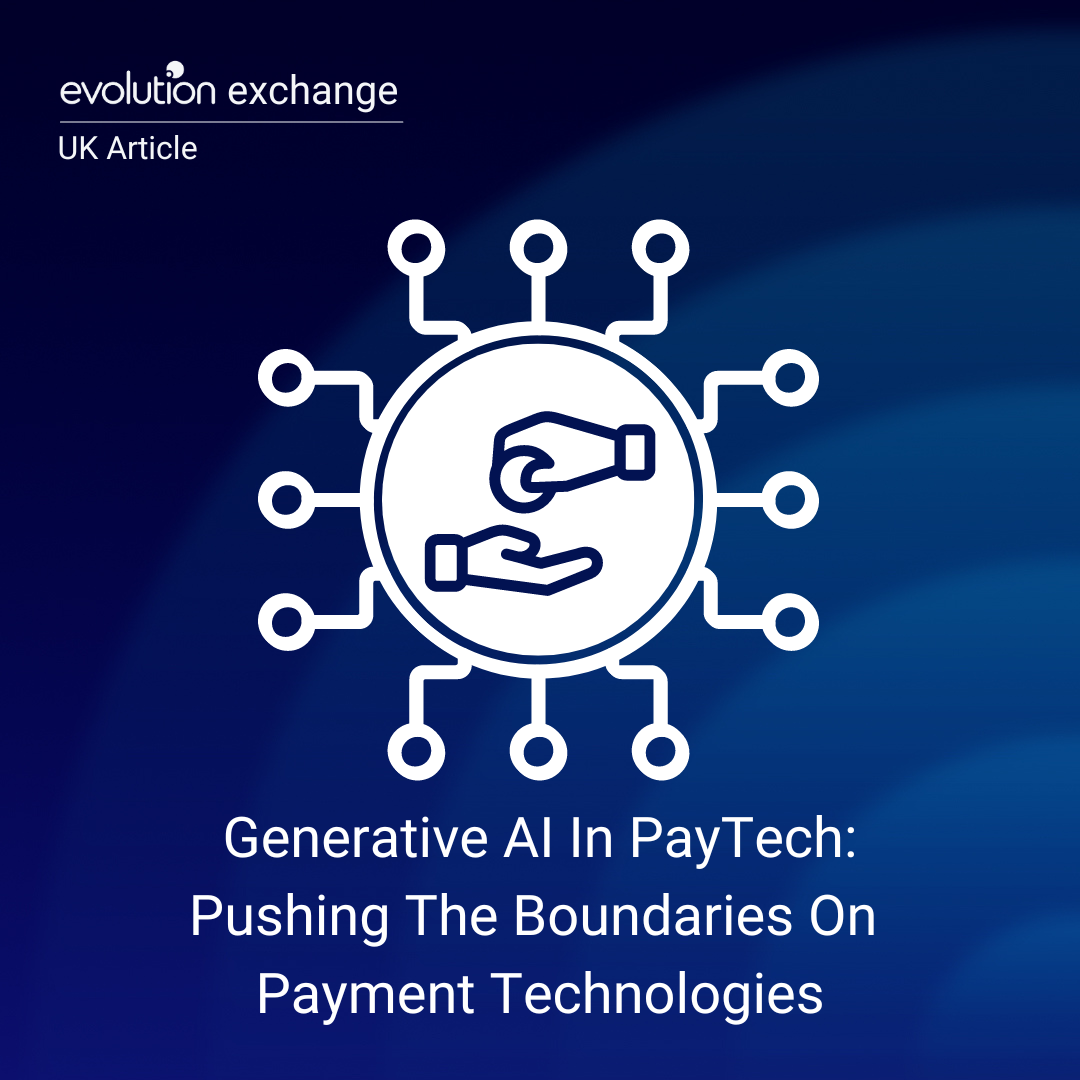Payment Technology, or PayTech, encompasses the systems and technologies that enable the transfer of money in the digital age. Generative Artificial Intelligence (AI), a subset of AI known for its ability to create new data and patterns, is playing a pivotal role in transforming this sector. By leveraging sophisticated algorithms and deep learning techniques, generative AI is driving innovation, enhancing security, and improving customer experiences in PayTech.
Understanding Generative AI
Generative AI uses machine learning models, particularly those based on deep learning, to generate new content and data patterns. Unlike traditional AI, which typically analyses and processes existing data, generative AI can produce new data that is representative of the underlying patterns it has learned. This capability is particularly beneficial in the fast-evolving world of PayTech, where efficiency, security, and personalisation are paramount.
Applications of Generative AI in PayTech
- Fraud Detection and Prevention
- Anomaly Detection: Generative AI can identify unusual patterns in transaction data, signalling potential fraudulent activities. By continuously learning from new data, it enhances the detection of sophisticated and evolving fraud schemes.
- Synthetic Data Generation: To train fraud detection models on rare fraud patterns, generative AI can create synthetic datasets that mimic real-world scenarios, improving the robustness of these systems.
- Personalised Payment Solutions
- Customer Behaviour Analysis: Generative AI can analyse customer transaction histories to generate personalised payment solutions, such as tailored payment plans or spending alerts.
- Dynamic Pricing Models: AI can generate dynamic pricing strategies based on real-time analysis of market conditions and consumer behaviour, optimising pricing for various services and products.
- Risk Management
- Credit Risk Assessment: By analysing alternative data sources, generative AI can provide more accurate and inclusive credit scoring, enabling better risk assessment and expanding access to credit for underserved populations.
- Predictive Analytics: AI models can predict potential payment defaults or delays by analysing historical payment data and identifying patterns that may indicate future risks.
- Customer Service and Support
- AI-powered Chatbots: Generative AI-driven chatbots can provide 24/7 customer support, handling inquiries, resolving issues, and offering personalised payment advice based on customer history and preferences.
- Automated Dispute Resolution: AI can analyse dispute patterns and generate solutions, speeding up the resolution process and improving customer satisfaction.
- Payment Process Optimisation
- Transaction Efficiency: Generative AI can optimise transaction processing by predicting and mitigating potential bottlenecks, ensuring faster and more efficient payment processing.
- Cost Reduction: AI can analyse transaction data to identify cost-saving opportunities, such as optimal routing of transactions to minimise fees.
Benefits of Generative AI in PayTech
- Enhanced Security: By improving fraud detection and prevention, generative AI helps secure payment systems against malicious activities.
- Improved Customer Experience: Personalised payment solutions and efficient customer support enhance the overall customer experience, building trust and loyalty.
- Operational Efficiency: Automating processes and optimising transaction workflows reduce operational costs and increase efficiency.
- Innovation: Generative AI fosters innovation by enabling the development of new payment products and services that meet evolving customer needs and market conditions.
Challenges and Considerations
- Data Privacy and Security: Handling sensitive payment data requires robust security measures to protect against breaches and ensure data privacy.
- Bias and Fairness: AI models must be monitored for biases that could lead to unfair practices. Continuous auditing and updating are necessary to ensure fairness.
- Regulatory Compliance: The dynamic nature of AI requires adaptive regulatory frameworks to ensure that innovations do not compromise financial stability and consumer protection.
- Transparency: Ensuring transparency in AI decision-making processes is crucial for building trust with consumers and regulators.
Generative AI is revolutionising the PayTech industry by enhancing security, personalising customer experiences, and optimising payment processes. Its ability to generate new data patterns and predictive insights offers financial institutions powerful tools for managing payments efficiently and proactively. However, to fully realise its potential, organisations must address the associated challenges of data privacy, bias, regulatory compliance, and transparency. By doing so, they can harness generative AI to create a more secure, efficient, and customer-centric payment ecosystem.





























